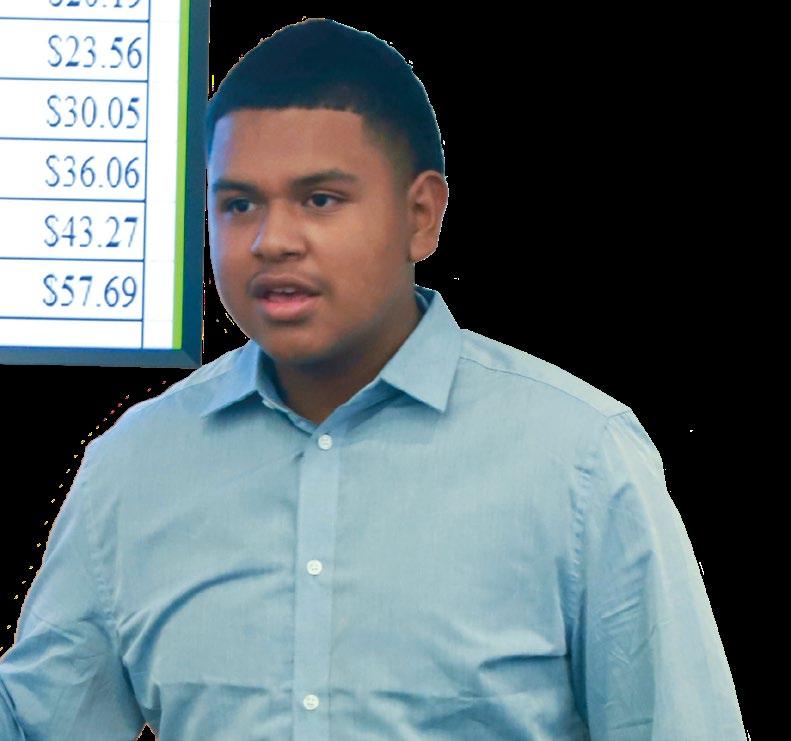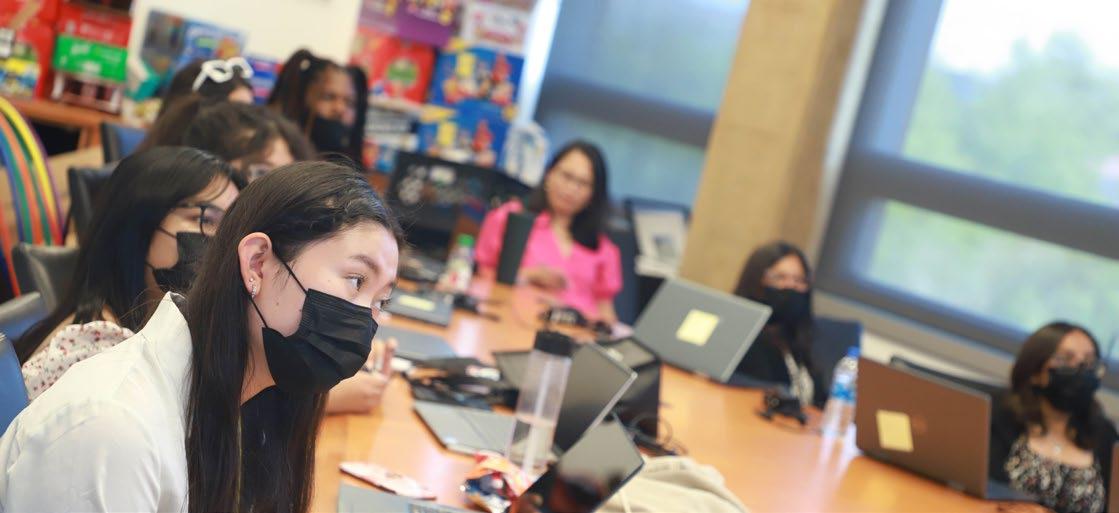
4 minute read
Bringing Financial Literacy Lessons to Life

As the Pacific Life LIFEvest program has grown and expanded, hundreds of teens have gained a better understanding of financial literacy and become firstgeneration college graduates.
By: Tanner Celestin
Experts agree, we are all living in uncertain financial times. With a recession looming, rapid inflation, and interest rates rising, it remains critically important to equip ourselves with tools for financial literacy. Young adults just beginning their higher academic journey are uniquely positioned to apply such skills to best overcome these challenges with confidence and belief in their financial futures.
For more than a decade, the Pacific Life LIFEvest program has helped high school students tackle the economic realities of becoming first-generation college graduates. The Merage School program, run by the Center for Investment and Wealth Management, prepares and motivates students to pursue their college degrees through first hand exposure to university life and financial lessons. “Many first-generation students don’t have anyone to talk to about college, and so they get to live in the dorms for a week and have undergrad RA’s talk to them about the college experience,” said Professor Chris Schwarz, who oversees the program. “So they get a sense of the feel and vision of what it would be like to be a college student.”
LIFEvest Director Adriana Lucas believes the program is important because it fills an education gap created by the lack of financial literacy courses offered in most high schools. While many kids may sporadically receive financial guidance from family members, LIFEvest empowers students to financially plan for the future early on.
Lucas said the program also aims to counteract some of the students’


preconceived understanding of college. “We’re getting them to think about college as something that’s accessible to them, because a lot of them don’t even know that if they’re coming from low-income backgrounds, they don’t actually have to pay those big six-figure prices that they see advertised for college,” Lucas said. “That’s a big deal because it can be really daunting for young students.” Lucas said that many students are constantly thinking about money due to their financial status, facing pressure to start working as quickly as possible to earn an income. One of the program’s classes, “Education Pays,” puts into context the increase in earning potential somebody can achieve by holding a college degree. “For some students, they think ‘Do I go to college and miss out on four years of employment or do I start working immediately,’” she said. “They don’t understand fully that college is an investment.” Schwarz said the LIFEvest program has evolved “in every conceivable way” since it was created in 2010.
Initially, the program ran for a week each summer and alternated between boys and girls every year. After receiving a generous $2 million donation from Pacific Life three years ago, the program now runs four separate weeks each year, including two for girls and two for boys. “Many first-generation students don’t have anyone to talk to about college, and so they get to live in the dorms for a week and have undergrad RA’s talk to them about the college experience.”

A group of LIFEvest students take in financial guidance at the Merage School.
Learn more about the Pacific Life LIFEvest program: The curriculum has also become much more structured. Staying in the dorms and visiting business campuses, including this year’s trip to Edwards Lifesciences, a global medical technology company, allow students to see that they have a place at college and within industry. About 150 students attended LIFEvest this summer. Most of the students come from Orange and Los Angeles counties. However, a few teens from Riverside and San Bernardino counties have gone through the program. Schwarz is planning to expand the program to other universities locally and across the country since the LIFEvest program was granted a trademark earlier this year. This summer, Clayton State University in Atlanta ran a LIFEvest week with 40 attendees. Schwarz is also aiming to expand the program by another week and add more
“One of the program’s classes, opportunities for mentoring “Education Pays,” puts into context and alumni the increase in earning potential events. somebody can achieve by holding “We only have so much a college degree.” capacity here, and there’s about 250,000 underserved students in Orange County, so there’s no way that we can serve all of those students,” he said. “It’d be great to get other universities both locally and nationally to put on the program. We’ll provide these other schools with financial support to put on the program and help them get off the ground with a grant. Then they can find local support after a year or two and run it themselves.”









